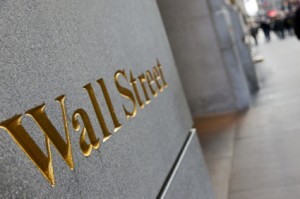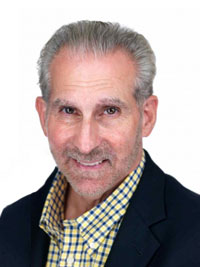 Has Wall Street Changed?
Has Wall Street Changed?
What is the true nature of Wall Street culture?
As an expert in the treatment of Wall Street personnel since the early 1980s, I was recently invited to participate in a panel discussion as part of Kerri Miller’s weekday news show “The Daily Circuit,” on Minnesota Public Radio.
The segment, entitled “Has Wall Street Changed?” was a lively discussion exploring whether or not there has been much meaningful change in behavior and accountability for Wall Street professionals in the wake of the financial services industry debacle of recent years. Have they had their comeuppance? Has the architecture, incentives, and behavior of Wall Street really changed? What is the nature of Street culture?
To Learn the Answers to These Questions and More, Click Here to Listen to “Has Wall Street Changed?”
I was joined by William D. Cohan, former financial analyst and current author and contributor to The Financial Times and Vanity Fair. Mr. Cohan has written three excellent books I highly recommend: “The Last Tycoons: The Secret History of Lazard Freres,” “House of Cards: A Tale of Hubris and Wretched Excess on Wall Street,” and “Money and Power: How Goldman Sachs Came to Rule the World.”
Topics of Discussion
The conversation was quite lively, as Ms. Miller was a superb host who held us to task. Among the issues discussed:
- The personality structure and psychology of Wall Street players and firms (arrogance, narcissism, hubris, elitism)
- The neuroscience of psychopathy, risk taking and gambling
- The OPM (other people’s money) vs. private equity mentality investment styles
- Darwinian Capitalism, human nature and the persistence of “bad” behavior
- The war of attrition between Street legal departments and their government counterparts
- Insider trading and the concepts of money and trust (people want to believe what they are told!)
Has Wall Street really changed? The Street consistently pushes the envelope. “Catch us if you can.” For example, Delaware Court of Chancery Judge Leo Strine recently (March, 2012) rebuked Goldman Sach’s “incomplete and inadequate handling” of a major conflict of interest case. Goldman was found out: they were caught playing all sides against the middle. They stood to reap enormous benefits playing three roles simultaneously: investor, financier, and advisor. Surrealism at its finest.
The Court of Chancery originates from English common law, and the Keeper of the King’s Conscience. The mission since the age of William the Conqueror has been to deliver justice, true justice. Goldman was found out. Judge Strine was a modern warrior.
Ever since Goldman Sachs and Morgan Stanley were allowed to become bank holding companies in 1999, Street culture has never been the same. These firms are able to go to the Fed “money window,” and borrow huge sums of money at negligible cost to bank roll high risk investments: leverage at will with other people’s money (our money).
Wall Street players are rewarded handsomely for greater risks which can yield greater returns, and not punished for losses. It’s not their money. This is part of the essence of current Wall Street culture. Has Wall Street become the penultimate modern cartel? Shareholder activists and scholars will study this question for generations to come.
Many other poignant issues were put on the table during the broadcast that all shareholder activists should explore, so I encourage you to listen to this recording and provide me with your feedback.
Ultimately, responsibility, integrity, accountability, and respect for money are core values in life and they need to be valued components of Wall Street culture for the sake of the viability and sustainability of our society.
Let’s not delude ourselves: the middle class is being crushed, the poverty index is soaring (22% of American children subsist at the poverty line), we are moving toward welfare state status (one third of Americans are funded by Medicaid, food stamps, and/or other government subsidies, 47% of tax filers pay no federal income tax), and health care costs make up an ever increasing part of the GDP (currently 20%). We may just run out of $team.
Stay Tuned for Upcoming Book
Since the early 1980s, I have practiced as a psychologist and psychoanalyst in New York, specializing in the treatment of Wall Street personnel, and their families. I have seen the evolution and cyclical implosion of our modern financial sector.
For 30 years, I have been immersed in “Wall Street Culture:” the set of shared values, attitudes, and goals that characterize a group. In other words: “how we do things here (like it or not, it’s our shop).” It’s been a lengthy baptism, and I look forward to sharing my experiences with you.
Content and previews for this work can be found on TheShareholderActivist.com, as well as my blog: www.theWallStreetPsychologist.com.
To contact Christopher Bayer directly, please email Christopher.Bayer@TheShareholderActivist.com.








